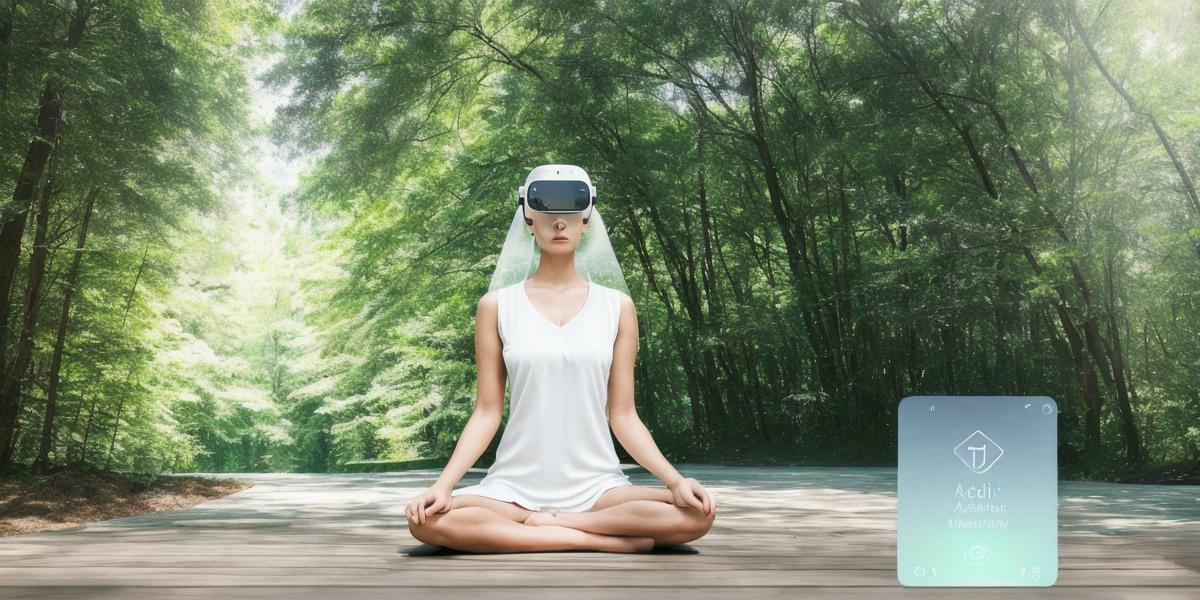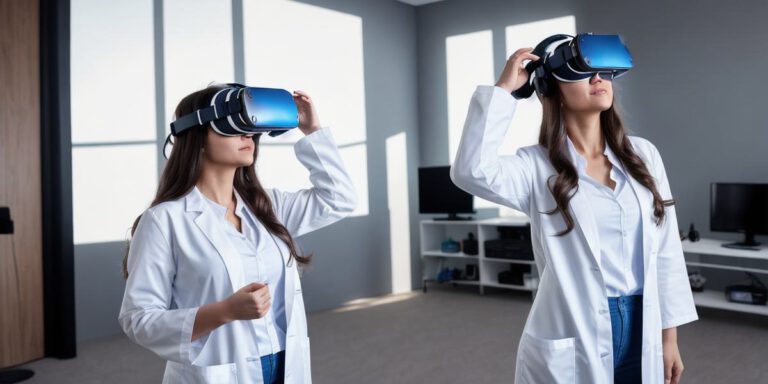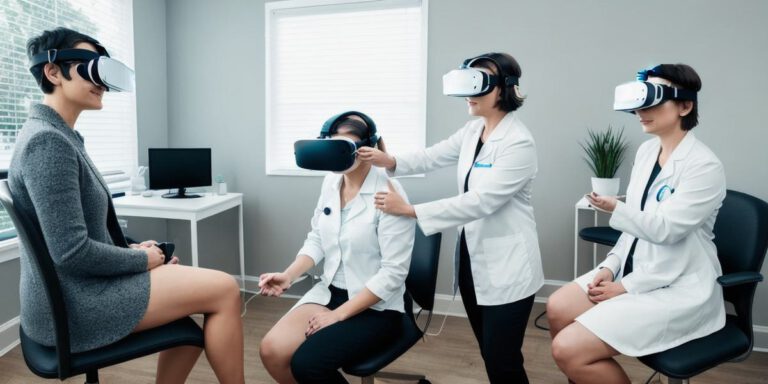AR-assisted Mindfulness and Meditation: Harnessing Augmented Reality for Stress Reduction and Well-being.

Title: AR-Assisted Mindfulness and Meditation: Harnessing Augmented Reality for Stress Reduction and Well-being
Mindfulness and meditation have become increasingly popular practices in recent years, as people look for ways to manage stress and improve their overall well-being. While these practices are effective on their own, the use of augmented reality (AR) technology can take them to the next level.
AR-assisted mindfulness and meditation allows users to immerse themselves in a virtual environment that enhances their experience and helps them achieve a deeper state of relaxation and concentration. By using AR headsets or smartphones, users can explore different landscapes, soundscapes, and visualizations that are designed to promote mindfulness and well-being.
One example of how AR technology is being used for this purpose is the Mindful Scapes app. This app uses 3D graphics and ambient sounds to create an immersive experience that helps users relax and meditate. For instance, users can explore a virtual forest or beach, and as they focus on their breath, they can listen to the sound of waves crashing or leaves rustling in the wind.
Another example is the Headspace meditation app, which uses AR technology to guide users through different meditation sessions. The app uses visualizations, animations, and sounds to create an engaging experience that helps users focus their attention and relax.
Research shows that AR-assisted mindfulness and meditation can be effective in reducing stress and improving overall well-being. For example, a study published in the Journal of Clinical Psychology found that participants who used AR-assisted meditation had lower levels of anxiety and depression than those who did not use this technology.
As Dr. Andrew Weil, founder of the Institute for Integrative Medicine and a leading expert on holistic health, said: "AR has the potential to enhance our ability to focus our minds and access deeper states of consciousness."
In conclusion, AR-assisted mindfulness and meditation is an innovative way to promote relaxation, stress reduction, and overall well-being. By immersing users in a virtual environment that enhances their experience, these practices can be taken to the next level. As research continues to explore the benefits of this technology, it will likely become an essential tool for doctors looking to help their patients improve their mental and physical health.








